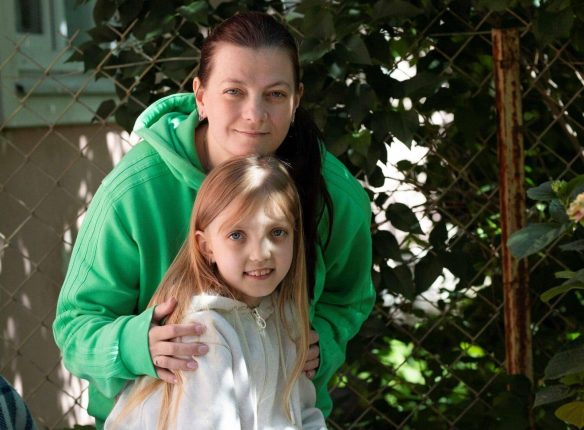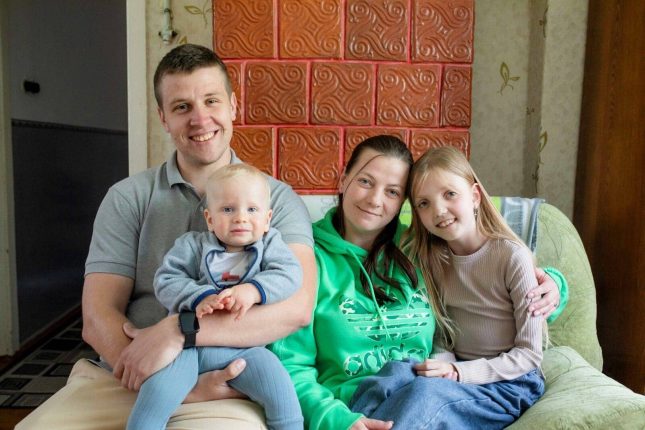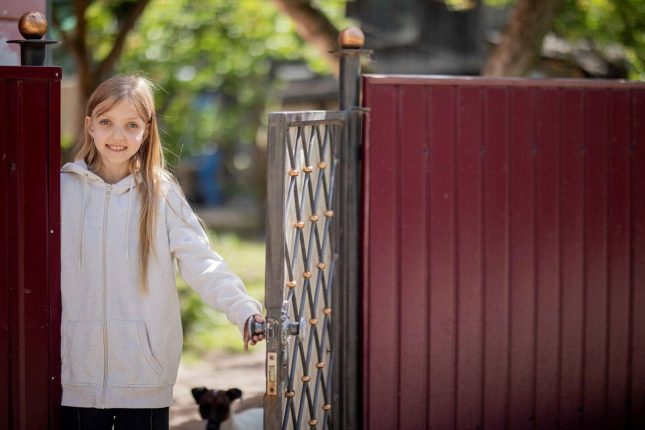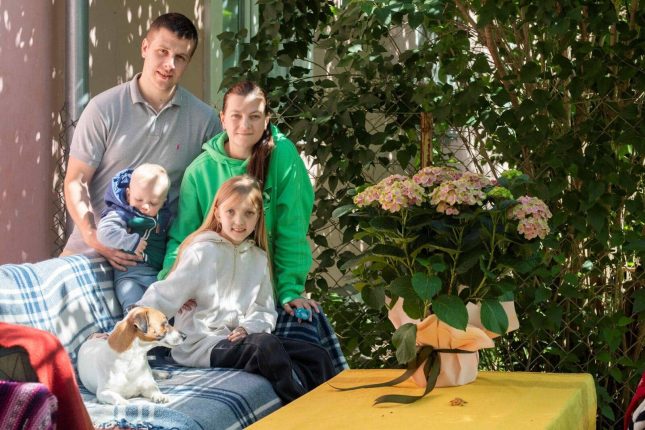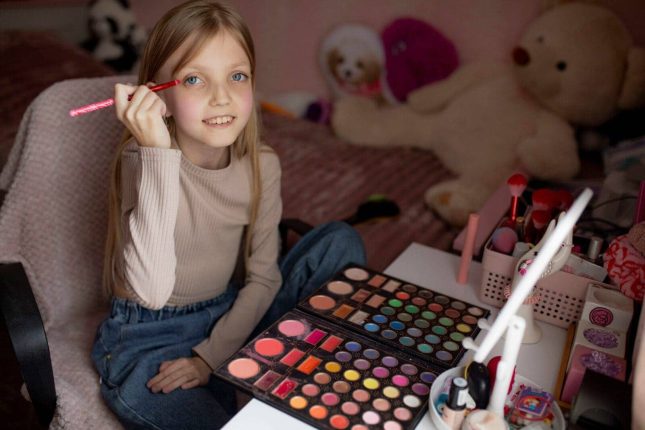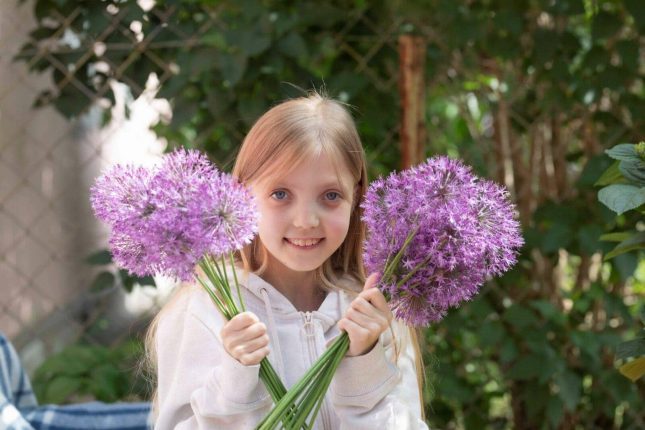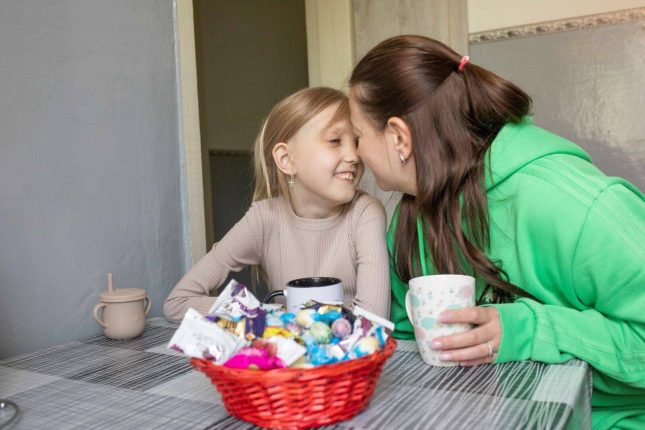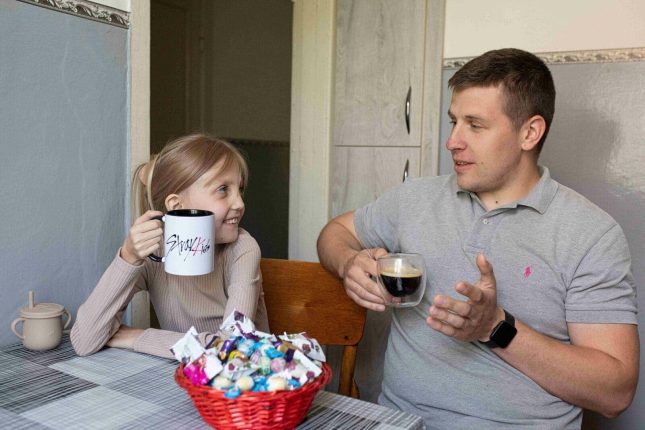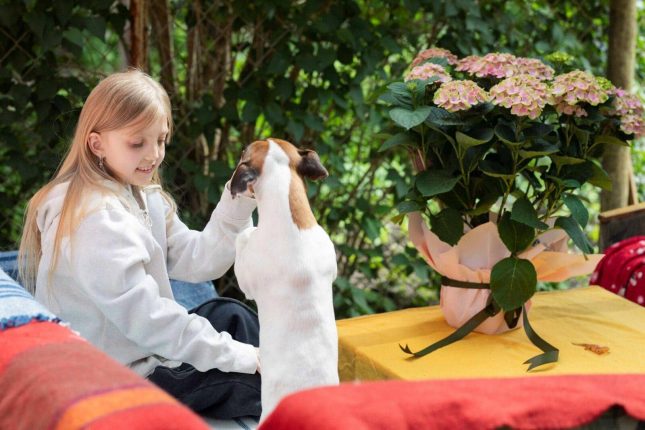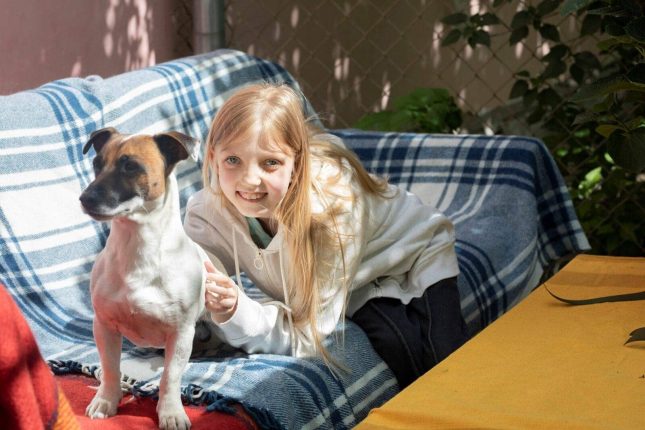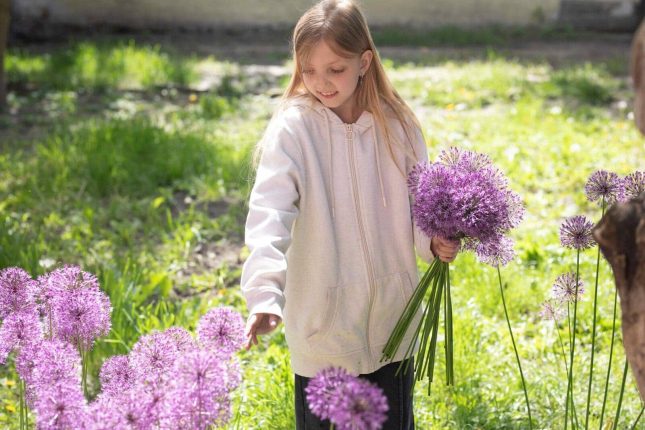
Cystic fibrosis: leaving no patient alone in time of war
16/05/2024
For a cystic fibrosis patient, every day is a fight for life. Dozens of pills, inhalations, breathing exercises, high-calorie foods are the mandatory rituals to be repeated day by day with a single purpose – to survive. With the outburst of the war, this daily fight has been particularly hard for the Ukrainian patients. Shelling, blackouts, lack of urgent medicines and food have put their fragile lives at high risk. The Ukrainian Association for Aid to Patients with Cystic Fibrosis instantly mobilised its resources to leave no patient alone.
“My daughter was diagnosed with cystic fibrosis in 2013 when she was one and a half years old,” says Yulia Tkachenko. “Our first reaction was panic and tears. We cried for one night, but the day after we realised that something had to be done and we started to look for information.”
Cystic fibrosis (CF) is a rare genetic disorder. The mutated gene affects the production of secretions – sweat, digestive fluids and mucus – making them thick. Therefore, the respiratory system, intestine, pancreas and reproductive organs are the first to suffer most. In Europe, cystic fibrosis is quite common: it affects one in 2,500 newborns. And there is no known cure.
“There are 1,009 persons with cystic fibrosis registered in Ukraine,” says Tetyana Okul, a pediatrician and pulmonologist at the Zaporizhzhia Regional Children’s Clinical Hospital. “Around one third are adults, which is a good indicator. Some 20 years ago, the life expectancy for a cystic fibrosis patient was up to eight years,” continues the doctor. “Over the years, the diagnostics of the disease has improved significantly. But due to the fact that it is a hereditary pathology, a cystic fibrosis person needs a constant replacement therapy: antibiotics to prevent and treat lung infections; inhaled medicines to thin the mucus in the lungs, to widen the airways and to reduce the inflammation; pills and vitamins to improve food absorption and to prevent malnutrition.”
This is what Yulia’s 10-year-old daughter goes through every single day. Her mornings start with inhalations, breathing exercises and a hypercaloric breakfast accompanied by a handful of pills. She must take a shower at least twice a day: the disorder disrupts the essential balance of salt and water in the body and results in increased sweating. In case of a severe exacerbation, the girl must be brought to the hospital for an intravenous antibiotic therapy. “We often call the treatment continuous, systemic and aggressive – but this is the only way for it to be effective,” affirms the pediatrician.
Immediate aid in an emergency
Sharing her experience as the mother of a cystic fibrosis child, Yulia remarks: “I learned about the All-Ukrainian Association of Care of Patients with Cystic Fibrosis exactly the day when the diagnosis was made. It helped me and my family to understand that we can live with this diagnosis. We’ve realised that we are not alone.” From the very first days, the NGO shared with Yulia and her family the information on the necessary treatment, it helped to obtain the adequate medicine from the state and advised on how to manage the diagnosis day by day in order to relieve the life of her little daughter.
However, as the war broke out in Ukraine, the daily life of cystic fibrosis patients came off the rails. Yulia recalls: “My daughter’s vital therapy was affected by blackouts: she needs continuous inhalations – every morning, afternoon and evening – which means the need for electricity. The Association has provided us with special portable inhalers that can work from rechargeable batteries and a charger for them. Now my daughter can do the procedures anywhere, anytime, and so we feel safe from a sudden exacerbation of the disease. The Association has also helped us with food and hygiene products specific for cystic fibrosis patients – a high-calorie diet is one of the core elements of the therapy.”
The All-Ukrainian Association of Care of Patients with Cystic Fibrosis was founded in 2010 to advocate for and defend the rights and interests of patients with cystic fibrosis and their families. Its members are the parents of children with cystic fibrosis – like Yulia Tkachenko – who actively defend the rights to a dignified life for all patients with cystic fibrosis.
“At this moment, our activity can be divided into two key components: immediate aid and advocacy,” says Larysa Voloshyna, the President of the All-Ukrainian Association of Care of Patients with Cystic Fibrosis. “On the one hand, we provide CF patients and their families with the necessary medicines, food and other essentials; on the other hand, we represent the interests of these patients and their families at the national and regional levels.”
When the war started, many families with CF patients remained in Ukraine. The Association kept monitoring all of them, including those staying in the occupied regions. The overarching objective was not to let their patients die due to the lack of the most essential things: food and medicine.
Secondly, the NGO has acquired portable inhalers to let children follow their vital therapy while being in bomb shelters. “We have feedback on two patients from Mariupol who died as the war started. A 30-year-old girl was hiding in the basement and could not do the inhalations. As a result, the sputum clogged her lungs, and she died of suffocation. A boy aged 10 could not get Creon (pancreatic enzymes to digest food), and he died,” regrets Larysa, adding: “But thanks to EU assistance, we have managed to meet the urgent needs of 200 families who found themselves in a difficult situation: families with two or more cystic fibrosis patients, families with a parent or a close relative fighting, families with CF patients and other children, low-income families… In total, we have purchased 200 high-caloric food and hygiene sets and 60 sets of accumulators with charging devices for portable nebulizers. The families were happy to realise that they were not left alone to defend themselves, that there is our organisation to help them. Together we can endure and succeed.”
Securing a future for little patients
Provision of food, hygiene products, and specialised medical equipment came as the Association’s rapid response to the war emergency. However, the major bulk of its work is focused on improving the quality of life for CF patients and increasing their life expectancy. “As of 2022, 72% of cystic fibrosis patients in Ukraine were children, and only 28% adults. In Europe and America, cystic fibrosis is not considered a child’s disease anymore: children represent less than 30% of all patients. Actually, in Europe a CF person lives up to 77 years, while in Ukraine a little more than 20. Increasing the life expectancy for our patients is the goal that we are pursuing when solving the issue of providing medicine and care,” explains the President of the Association.
The NGO took an active part in the development of the first protocol regarding the diagnostics, treatment and prevention of cystic fibrosis at the national level. Larysa Voloshyna joined the working group established by the Ministry of Health to give voice to all Ukrainian patients. Currently, the Association is working with the Ministry by contributing to the regulation on the wholesale and retail prices for certain medicines, making them more accessible to CF patients.
The Association was the initiator of the trainings for doctors regarding the treatment of cystic fibrosis in adults. “Parents of the diagnosed children were getting alarmed about their treatment and care when they were reaching the age of 18, as there were no adult pulmonologists who specialised in cystic fibrosis,” recalls Tetyana Okul. “The association was very active; it addressed the health care management and we managed to conduct educational programmes for doctors of adult patients.”
Despite this challenging time, the Association is making every effort to build a better future for its patients. Thanks to its work, around 400 patients have started receiving an innovative life-long therapy. A fixed-dose combination medication of this targeted therapy takes over the function of the mutated gene, and the body gets to function properly. Moreover, the Association advocates for the establishment of a network of reference centres for cystic fibrosis in Ukraine, which would allow for an efficient exchange of information and the establishment of a single registry to define the needs of each patient, as well as the required budgetary funding. Moreover, the status of a reference centre gives an institute, an academy, a polyclinic or a hospital the possibilities for broader international cooperation.
“There are still many people that we want to help. We want to learn about their personal needs and assist them in every possible way. In this respect, the EU financial support is crucially important for us – especially now as winter is approaching – so, we are looking for the possibilities to apply for new grants,” concludes the President of the Association.
This initiative of the Ukrainian Association for Aid to Patients with Cystic Fibrosis was financed by the EU through the Network of 100 Percent Life Rivne.
Author: Volha Prokharava
Stories
-
Katarina Mathernova: If Ukraine had a human face and a human spirit, it would be 10-year-old Roman Oleksiv
-
A regional mission to drive social entrepreneurship: the story of Ksenia Kosukha
-
EU restores safe water supply for 100,000 Ukrainians affected by war
-
Promoting IT during the war: Lviv IT cluster and how EU4Digital helps
-
Frontline digitalisation: Kharkiv IT Cluster collaborations
-
How EU4Youth is driving opportunity and success among young Ukrainians
